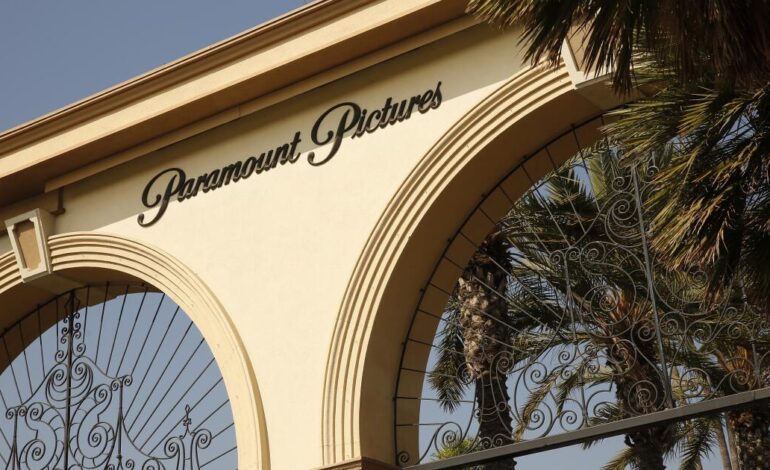Paramount Rejects Boycott of Israeli Film Amid Gaza Conflict

UPDATE: Paramount has officially denounced a proposed boycott of Israeli film institutions, a move that has sparked significant debate in Hollywood amidst the ongoing Gaza conflict. The announcement came on October 20, 2023, following an open letter from a group named Film Workers for Palestine, which has garnered support from dozens of prominent filmmakers.
The group, which includes notable figures such as Joaquin Phoenix, Ava DuVernay, and Emma Stone, launched its campaign earlier this week. They pledged to withdraw support from Israeli film festivals, production companies, and other entities they accuse of being complicit in “genocide and apartheid against the Palestinian people.” This letter, signed by hundreds, highlights the filmmakers’ commitment to addressing what they describe as an urgent humanitarian crisis.
In their statement, the group asserted, “As filmmakers, actors, film industry workers, and institutions, we recognize the power of cinema to shape perceptions. In this urgent moment of crisis, we must do everything we can to address complicity in that unrelenting horror.” They have committed to not screening films or collaborating with any Israeli film institutions implicated in attacks on Palestinians.
In stark contrast, Paramount’s leadership firmly rejected the boycott. The studio, recently acquired by the Larry Ellison family and RedBird Capital Partners, stated, “We do not agree with recent efforts to boycott Israeli filmmakers.” Their message emphasizes that silencing creative artists based on nationality does not foster understanding or contribute to peace.
Paramount is the first major studio to publicly take a stand on this divisive topic. An insider disclosed that CEO David Ellison and the leadership team felt strongly about opposing the boycott, emphasizing that “the global entertainment industry should be encouraging artists to tell their stories and share their ideas with audiences throughout the world.”
The company’s official statement further reinforced their position: “We believe in the power of storytelling to connect and inspire people, promote mutual understanding, and preserve the moments, ideas, and events that shape the world we share.” They called for increased engagement and communication, arguing that the world needs more dialogue, not less.
This controversy comes at a time when the entertainment industry is grappling with complex geopolitical issues, highlighting the intersection of art and activism. As this situation develops, many are watching closely to see how other studios and artists will respond to the growing calls for solidarity with the Palestinian cause.
Next Steps: As the debate continues, industry insiders anticipate further reactions from other major studios and artists, potentially influencing the future of film production and distribution in a politically charged climate.






